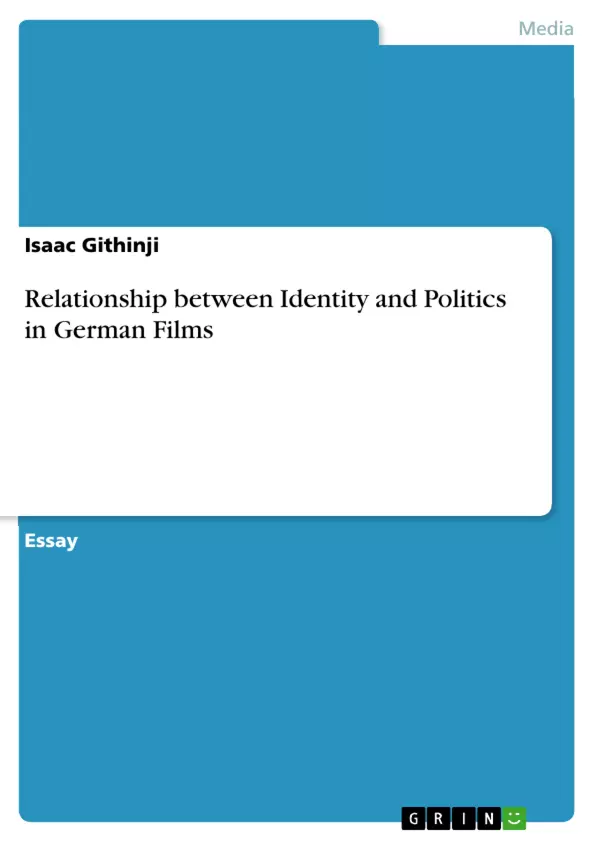The German film industry in the post-war era depicted a society that was struggling to find validation or acceptance in the global arena while having being condemned by the United Nations for its role in propagating the world war and commuting widespread and targeted atrocities against the Jewish community. This was an epoch where the Third Reich was in full control of Germany, and they were keen on invasion and world conquest. The political regime in Germany was in full
control of an individual’s liberty. The government used education and culture as tools to control the population; they used the media to disseminate their propaganda throughout the society. This was coupled with the erosion of the very societal fabric, such as the family, which affirmed the relationship between identity and politics during this era.
Inhaltsverzeichnis (Table of Contents)
- Relationship between Identity and Politics in German Films
- Murderers are Among Us
- To Be or Not to Be
Zielsetzung und Themenschwerpunkte (Objectives and Key Themes)
This text examines the relationship between identity and politics in German films of the post-war era. Through analyzing the films "Murderers are Among Us" and "To Be or Not to Be," it delves into how the German film industry portrayed a society struggling to rebuild its identity in the wake of the Nazi regime's atrocities.
- The impact of the Nazi regime on German identity
- The portrayal of post-war German society in film
- The influence of politics on individual choices and actions
- The use of film as a medium to explore themes of justice, revenge, and forgiveness
- The complexities of German identity in a global context
Zusammenfassung der Kapitel (Chapter Summaries)
- The first chapter analyzes the film "Murderers are Among Us," focusing on the visual representation of post-war Berlin and the characters' struggles to navigate the aftermath of the war. It examines how the film portrays the impact of the Nazi regime on individual identity and the search for justice.
- The second chapter analyzes the film "To Be or Not to Be," highlighting the use of humor and satire to critique the Nazi regime. It explores how the film uses the theater as a backdrop to reveal the political identities of characters and their choices in the face of oppression.
Schlüsselwörter (Keywords)
The key terms and themes explored in this text include German identity, post-war society, Nazi regime, political control, individual agency, film as a medium, justice, revenge, and forgiveness. These concepts are central to understanding the complex relationship between identity and politics in German films of the post-war era.
How did post-war German films explore identity?
They depicted a society struggling for validation after the atrocities of the Nazi regime, often focusing on themes of justice, guilt, and reconstruction.
What is the significance of the film "Murderers are Among Us"?
It was one of the first post-war films to visually represent the ruins of Berlin and the struggle of individuals to navigate the moral aftermath of the war.
How did the Third Reich control individual liberty through media?
The political regime used education, culture, and films as propaganda tools to disseminate their ideology and control the population's identity.
What role does satire play in "To Be or Not to Be"?
The film uses humor and satire to critique the Nazi regime, revealing the political identities of characters through the backdrop of a theater.
How was the societal fabric, like the family, affected by politics?
The erosion of societal structures confirmed the deep relationship between individual identity and state politics during the era of the Third Reich.


